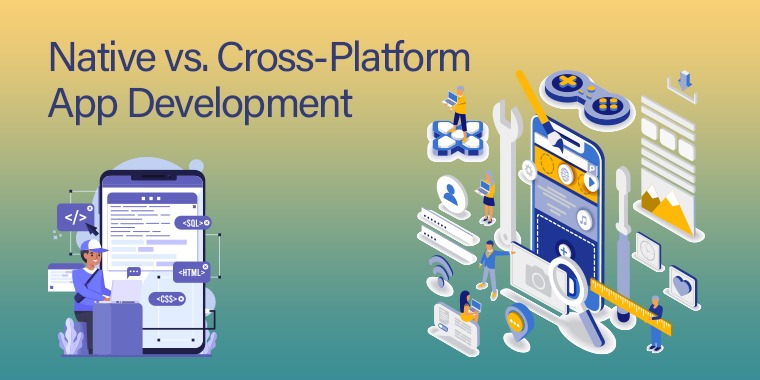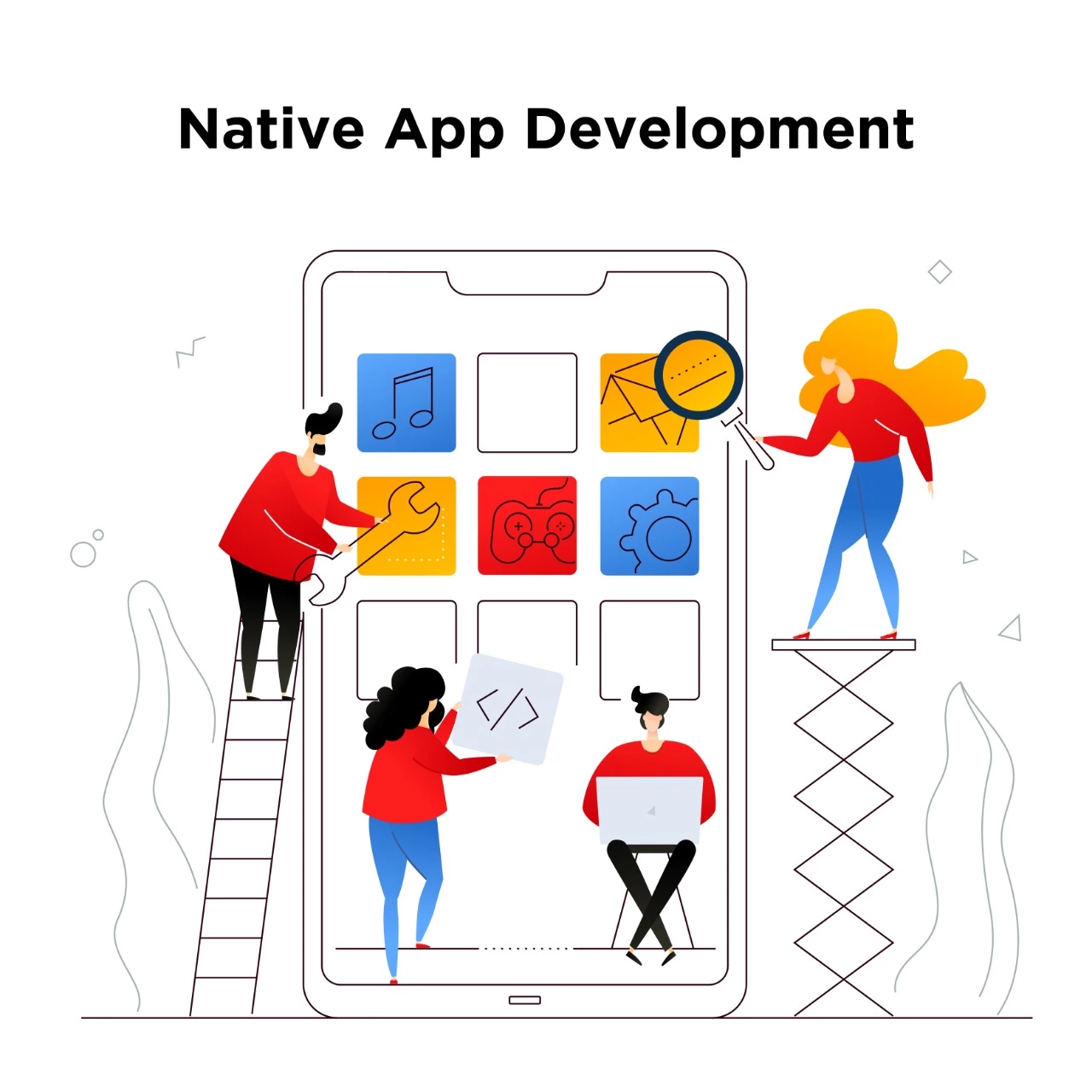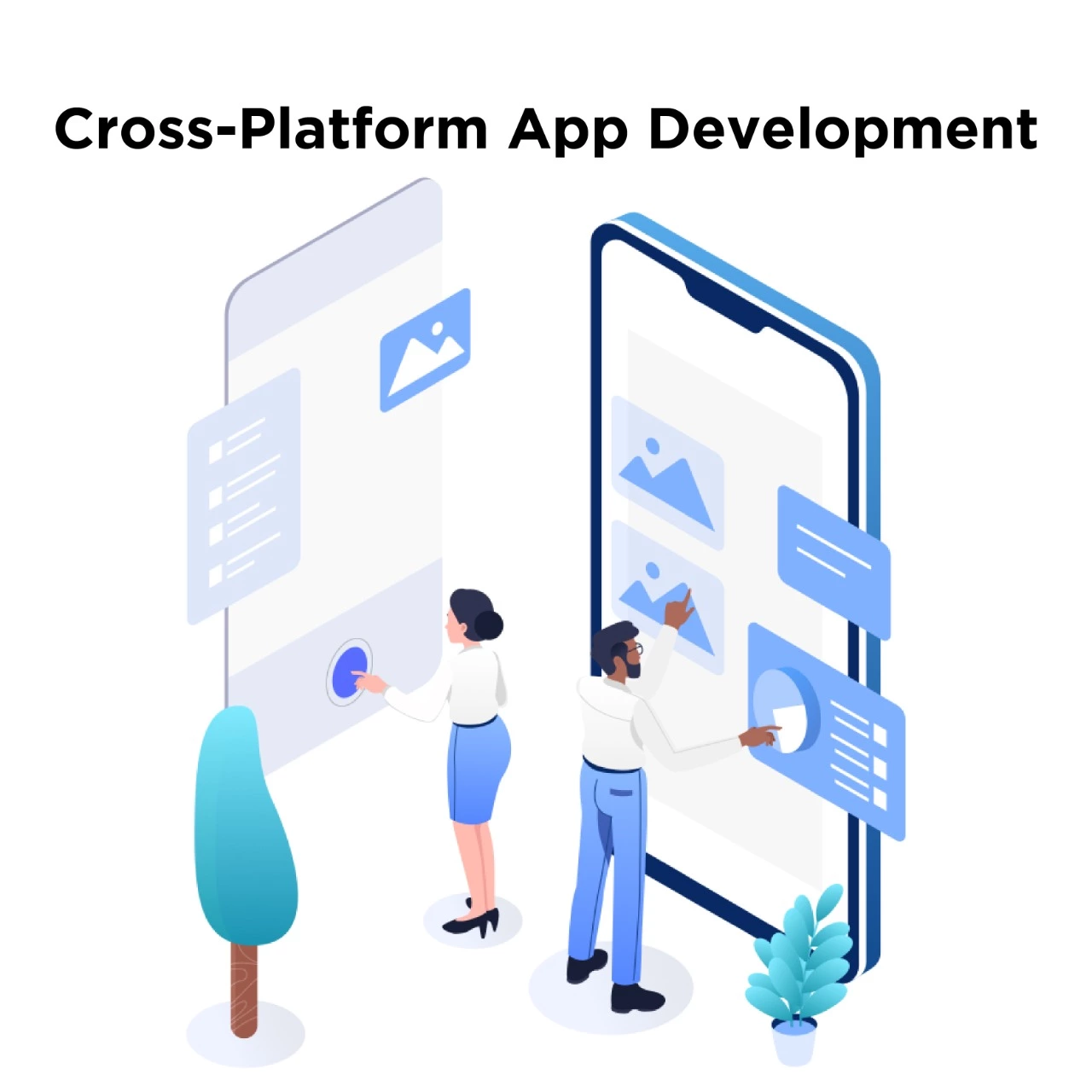Native vs. Cross-Platform App Development: How One Is Best For Your Business?
Today, with the rapid growth in mobile application development, the world has witnessed the rise of various kinds of mobile platforms for app development. Choosing between Native vs. Cross-Platform for App Development Agency has long-term implications in terms of cost, time, and functionality. This article will explore both options and help you know which one is best for your business. The most popular frameworks for developing apps include:
- Native app development
- Cross-platform app development
- Web app development
More than 4.4 million apps are available on Appstore and Google Play, targeting around 14 billion mobile phones all over the world. If you’re keen on launching a mobile application, an important decision to make is choosing between native or cross-platform mobile development.
Native App Development
As the name implies, Native apps are exclusively designed for a specific platform, like iOS, Android, or Windows. Native apps can connect directly to the device’s hardware like a microphone, camera GPS, and many additional features. This means that they can take advantage of all the potential benefits of the device and offer the best performance and user experience. This is why the majority of CTOs are more inclined to develop Native apps for their products.
With Native applications, IT-related business owners do not have to be concerned about their compatibility with their device or the browser’s behavior.
When Should Business Develop a Native Application?
Native apps have numerous advantages. But, CTOs must be aware of the scenarios in which they may choose to use Native applications. We’ve put together the following list of situations for business owners who may decide to build a Native application:
- You’re planning to build a complex application, then Native apps become an ideal option. As they can leverage all the benefits of the device, they are the perfect choice to develop advanced high-end applications.
- The process of developing a Native app can be more costly as opposed to cross-platform apps. If you don’t have budgetary constraints on your app development, then you can go for Native application development.
- Alongside more money, Native apps take more time to create. Therefore, if you’re in no urgency to launch your app, choose Native apps development.
- Native apps are a good investment in the future. As they offer a better user experience, they’re bound to gain traction within the market. If you have a specific market you want to reach and are willing to sit; Native apps can reap excellent outcomes.
- If you want to build an app that can be easily updated with new features in the future, then a Native app is best.
Web Application Development Company uses various types of tools in Native app development based on the platform. These are:
- For Android: Android IDE, Android Studio, IntelliJ IDEA
- For iOS: Atom, XCode, AppCode
Cross-Platform App Development
Cross-platform app development refers to creating an app that works on several platforms. They provide a Native-like appearance and feel to the end-users; however, they aren’t equipped to take advantage of the full advantages that the platform offers. This doesn’t mean Cross-platform applications compromise the security of apps. Additionally, these apps are durable and easy to maintain.
The business owners who decide to go with Cross-platform app development, aim to grow the number of users they have.
When is the best time to develop a cross-platform app?
Similar to Native apps, cross-platform applications come with their own advantages. Here are the top reasons why businesses should choose to go with cross-platform development of apps:
- Cross-platform applications are simple to carry around in your pocket. Therefore, if you are a bootstrapped company looking for maximum results with less investment, you should go for Cross-platform apps.
- Cross-platform applications have lower maintenance costs. Therefore, they do not have any negative effect on the business’s overall revenue.
- If you have less time for app marketing, Cross-platform app development by Mobile App Development Services is a better choice.
- It is simpler to install and update cross-platform apps.
Native Vs. Cross-Platform App Development: How To Pick?
Native Vs. Cross-platform App Development is the most infamous of all fights in the world of app development. There are a few important aspects that CTOs must consider when selecting an app development platform. It is, therefore, crucial to know the fundamental differences between Native and cross-platform app development before choosing Mobile App Development Services.
Development Time
Native apps require a long development time since the code is created from scratch for every platform. However, cross-platform apps operate by the principle of “write once and run anyplace’. This means that Web Application Development Company don’t need to start from scratch, and they can run a single code across different platforms.
Efficiency and speed
The speed and performance of the software play an important factor in determining the direction that the app will have. With Native apps that are native, users or the IT business owner does not have to fret a bit about the speed or performance of the app. These apps are fast, responsive, and less likely to crash. For Cross-platform applications, the situation is quite different. They are frequently affected by performance issues and are generally slower than Native applications.
Features
Native apps have performance SDKs that allow access to API devices without difficulty. In addition, unlike Cross-platform applications, Native apps support offline capabilities and offline features. For cross-platform apps, there’s no guarantee of access to the API of the device.
Customer reach
The reach of customers for Native apps is limited since they are designed specifically for a particular platform. Furthermore, reaching a bigger audience is easy when using Cross-platform apps because they allow the promotion of one app on multiple platforms.
Language compatibility
The compatibility with languages for Native apps is higher because they are built using a particular language. For instance, Java and Kotlin are employed to develop Android and iOS apps, whereas Swift and Objective C are utilized to develop iOS development. Cross-platform apps are created using JavaScript, which can be used on a variety of devices.
Conclusion
Both Native and Cross-Platform app development has advantages and disadvantages. It all boils down to the exact needs of your business before settling down to a framework for developing apps. For IT business owners, it’s important to understand what they would like before deciding on a framework for app development. It is crucial to make a choice guided by the present and future plans in mind.
Contact Gyanmatrix, a leading App Development Agency, for more information.
🚀 Unlocking Business Potential with Salesforce App Development
🚀Unlocking Business Potential with Salesforce App Development In today’s hyper-competitive landscape, businesses are under constant ...
SaaS Development Company in India: Why India Leads the Global SaaS Innovation Curve
SaaS Development Company in India: Why India Leads the Global SaaS Innovation Curve The ...
Top Digital Transformation Companies: Pioneering Innovation in the Modern Business Era
In an era where technology underpins every facet of business, digital transformation is no ...
7 Strategic Reasons Why GCC India Is the Silent Engine Behind Tech Giants’ Growth
Global Capability Centers in India have quietly transformed into innovation powerhouses, playing a pivotal ...
Global Capability Center India: Strategic Growth Engine for Global Enterprises
Executive Summary Global Capability Center India is evolving far beyond traditional offshore service models into ...
Unleashing Blockchain development: Driving Business Efficiency and Innovation
Blockchain Development is no longer just a buzzword—it’s a game-changer for businesses across industries.From enhancing ...










